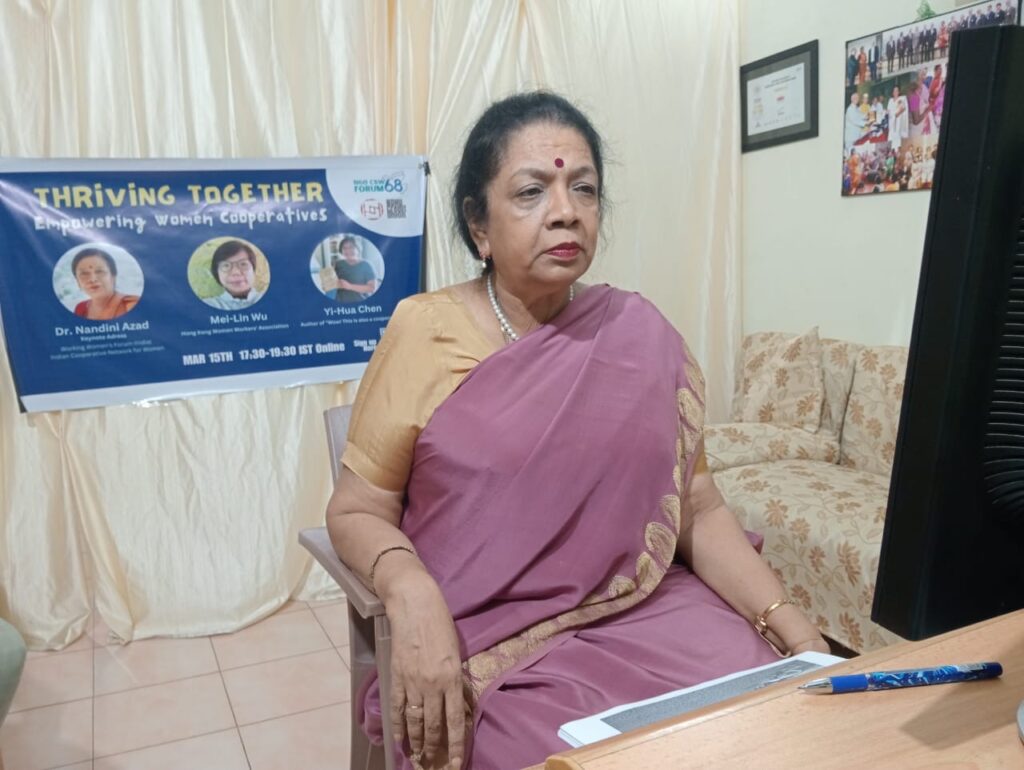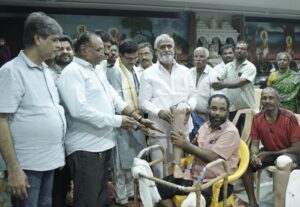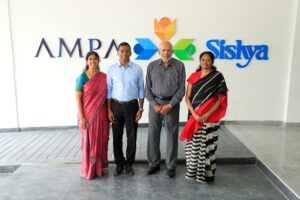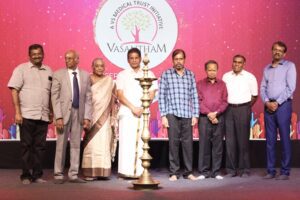UNITED NATIONS COMMISSION ONTHE STATUS OF WOMEN 68TH EDITION (UNCSW68) VIRTUAL PARALLEL EVENT, NEW YORK

“Thriving Together: Empowering Women Cooperatives”
“The importance of cooperatives for rural women – Policy mechanisms with international views and the practical experience in India”
Internationally Acclaimed Women Cooperator
Dr.Nandini Azad will render the
Key note address
On the subject of the “Importance of Cooperatives for Rural Women in India and Experience Sharing of Indian Cooperative Network for Women (ICNW) Organizations”
It is indeed a great honor to present before you as Chairperson of the board of the Indian Cooperative Network for Women, Advisory Committee and President of the Working Women’s Forum (India) (WWF); Global Board member of the Worlds oldest Cooperative union the International Raiffeisen Union, Germany (re-elected women member in 100 years) and the coordinator of the WFO Working Groups on Cooperatives. It is an honour to share my experience and journeys to such a distinguished gathering at the UNCSW68, HQ parallel event from New York in Taiwan. In the last 4 years we have organized or associated with 10 such global events. We thank the UNCSW profusely for the honour and Trust (as UN Consultative members of 28 years).
I especially thank the Dong Hwa University, Dong Hwa Credit Union Campus, Taiwan Mme.Liu for kindly asking me, us to render the keynote address.
The Working Women’s Forum (WWF) and Indian Cooperative Network for Women (ICNW), headquartered in Chennai, are leading the way in empowering poor women in the informal sector worldwide. With over 620,000 members across four states in South India namely Tamil Nadu, Karnataka, Andhra Pradesh, and Telangana with branches in 14 locations. We are successfully marching towards half a century of service to these women through models.
I feel proud to share with you that our members are engaged in 267 occupations, including fish, flower, and vegetable selling, idli (rice cake) and snack shopkeeping, weaving, farming, lace artistry, hawking, and more. In services, trading, petty production and manufacturing. They represent a convergence of class, gender, and caste, making their social conditions untenable. But our grassroots women have demonstrated that they can cope and recover from any shock or disaster through our iconic “Gender and Equity model”.
Through this model, we have disbursed 500 crore rupees in petty loans (approximately 5 billion US$), with a high repayment rate. Our outcomes have been developed within the context of SDGs. Our members are not just surviving, but thriving, and they are leading the charge for gender equity and social justice.
I stand before you today with not only a message of hope and opportunity but also for cohesive collaboration in cooperative sectors between India and Taiwan. It is high time we work together for growth and prosperity with serious attention to greater gender equality. And Hong Kong stake holders too welcome at this event and global participants.
Gender is more than a statistic:
The pioneering ICPRD study of 26 countries on the Status of Women in co-operatives in the Asia-Pacific region that I conducted highlighted interesting data, facts and case studies. (2015 – 2017) (Presented to the ICAP cooperative ministers conference in Hanoi, recommending 33% reservation at all levels of cooperatives.
It mirrored the challenges and limitations of being Asia – Pacific women citizens, tempered by patriarchal tendencies.
Yet it highlighted strong women’s/social/people’s movements and engendered by far-reaching government policies and laws that spur women’s participation in co-operatives.
Especially, as Asia now seems to be world’s future economic epicenter.
OVERALL FINDINGS OF THE ASIA PACIFIC ICPRD STUDY OF 26 COUNTRIES
While women’s representation in co-operatives at higher echelons is not significant at decision making levels – new trends, decisions, issues indicate new threshold of change for women.
Hardly 10% women on boards! Over a decade.
A Glimmer of hope can be attributed to the level of international awareness, conventions, gender networking in co-operatives and success of new age women-only co-operatives that are trendsetters, like the Indian Cooperative Network for Women (ICNW).
Emerging leadership space in a structurally difficult and culturally complex scenario that has way forward with possibilities for women.
Indian cooperative History & movement
India, the land of diversity, culture, and innovation, has risen to become the fifth-largest economy in the world. We are heading towards making India a Developed country by 2047. A clarion call has been given by our Prime Minister to achieve the goal of ‘Viksit Bharat’ (Developed India) by 2047 when the country will be celebrating 100 years of Independence (India@100).
Both India and Taiwan have strong economics. Taiwan has made significant investment in sectors such as electronics, manufacturing, and information technology in India. While Taiwanese companies have established a presence in India, contributing to economic growth and employment generation. Culturally also, there have been exchanges between India and Taiwan, including academic collaborations, cultural performances, and people-to-people interactions. Now, we need to enhance our understanding and promote cooperatives with a great goal.
Taiwan, with its rich biodiversity and commitment to conservation, serves as an inspiring example of the positive impact that cooperative initiatives can have on preserving our natural heritage. Let us continue to foster partnerships, share knowledge, and mobilize resources to ensure a sustainable future for generations to come. Together, we can make a meaningful difference in safeguarding the wonders of our planet for present and future generations.
The world’s prime concern is now climate change and cooperatives play a critical role in addressing this issue too. Global Trends give us a headwind and demonstrate that climate-smart solutions are not only environmentally sustainable but also economically viable. By harnessing innovation and collaborative partnerships through cooperatives, we can unlock the potential for inclusive and sustainable agricultural development in India.





